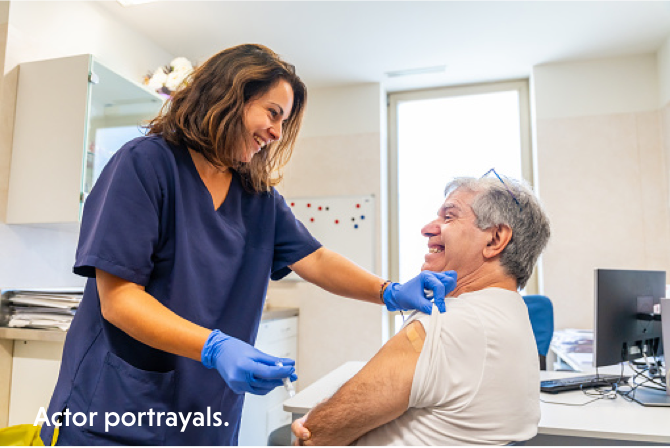
What are clinical trials?
Clinical trials are studies where doctors learn more about health and diseases. They are a form of research that investigates medical treatments to prevent, treat, and understand illnesses. These studies help make sure the medical approaches are safe and effective.

Why are they important?
Clinical trials are important because they are the backbone of medical advances. By building upon existing scientific knowledge, they help shape the future of medical care and offer patients access to emerging treatments.

Who can join a clinical trial?
Each trial has specific rules, known as "eligibility criteria," which may include factors such as age, gender, specific health conditions, or a history of certain treatments. These rules help to ensure participant safety and that the trial collects useful information. Each study is different, so eligibility can vary from one trial to another.

How is safety managed in clinical trials?
Clinical trials are run by expert teams who follow strict rules set by regulatory agencies to make sure patients are treated fairly and safely. Each trial has a plan, called a “protocol,” that outlines these protections and makes sure the potential benefits outweigh the risks. During the trial, the research team keeps a close eye on any side effects or health issues that may come up. An Institutional Review Board or Ethics Committee also monitors the trial and can stop it at any time if safety is a concern.
What to expect in a clinical trial
This is the first step where a study team member will see if a participant is able to join based on the specific study requirements. They may also go over the goal of the trial, the medicine being studied, how many visits are needed, support offered, and possible insurance coverage.
Informed consent is the next step after prescreening in a clinical trial. The study team will thoroughly explain the trial and the participant will decide if they want to join or not.
After the informed consent has been signed, the study team will examine the participant's health background and may perform some tests. This is to ensure the participant is the right fit for the study. If there's anything in the health history or test results that suggests the study isn't a good match, the participant might not be allowed to join.
Following the completion of the screening process and informed consent, participation in the clinical trial begins. The study team provides guidance through all the required steps, prioritizing health and safety at every stage. Each trial is unique in location, procedures, and visit frequency.
There are a few reasons why a participant’s time in a clinical trial might come to an end. This can happen when the trial is finished, if it's stopped early, or if they or their healthcare provider decides they should no longer participate. After the trial, participants can talk to the study team or their regular care team about what to do next. The study team might also want to check in later to see how participants are doing.
Who is involved in clinical trials?





Frequently asked questions
The time commitment for trial participation varies. It depends on factors like trial location, procedures, and visit frequency, which differ for each trial.
Clinical trials take place at various locations like doctors' offices or medical centers. The specific location depends on the trial.
Some clinical trials provide financial compensation to participants, though this differs based on the study. In addition to potential payments, trials may cover costs associated with the medication, necessary tests, visits, or travel expenses.
In the US, insurance coverage for clinical trials is different from person to person. Typically, health insurance covers patient care costs, like doctor visits and standard treatments. However, extra costs like travel or childcare may not be covered. Some clinical trials offer financial help for these extra costs, so it's important to ask the study team about this.
Personal information is safeguarded during clinical trials. Some medical data might be needed by those overseeing the study, but they follow strict rules. The study team has a responsibility to tell possible participants what data might be shared and how they will keep it private.
Participants can withdraw from a clinical trial at any time.
Participating in a clinical trial doesn't mean giving up regular doctor visits. In fact, the study team often works together with a participant's doctor to ensure their care isn't disrupted. However, in certain studies, there might be a need for participants to stop taking some medications.
After your participation ends, the study may continue for months or years. Once final results from all participants are compiled and analyzed, they are often published publicly. Clinical study report (CSR) synopses and plain language summaries (PLSs) may be made available for certain studies. Check with your clinical trial site or kitemedinfo.com to learn more.

